Published 04 Jul 2024
The Benefits and Challenges of Decentralized Governance in DAOs
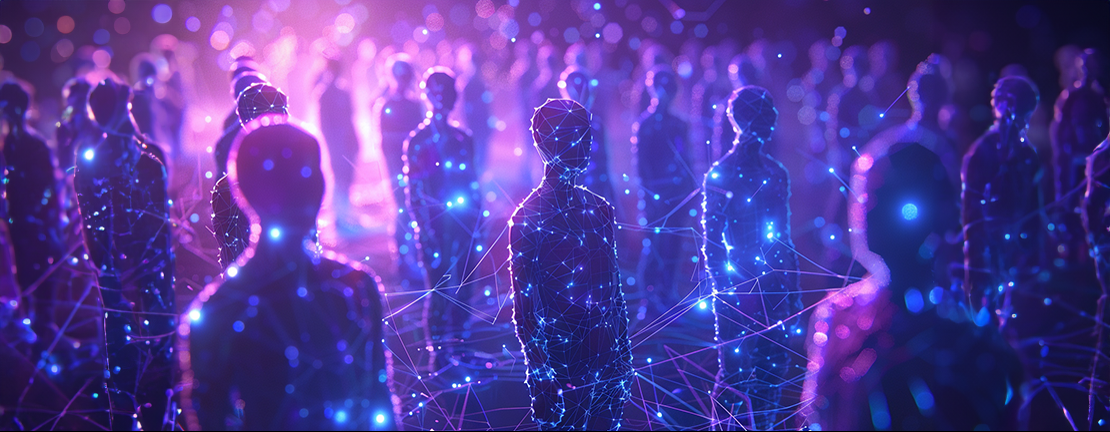
Decentralized Autonomous Organizations (DAOs) represent a revolutionary shift in how organizations operate and make decisions. Unlike traditional hierarchical structures, DAOs leverage blockchain technology and smart contracts to enable decentralized governance. This means that decision-making power is distributed among all members rather than being concentrated in the hands of a few.
Decentralized governance in DAOs is built on the principles of transparency, inclusivity, and autonomy. By using token-based voting systems and smart contracts, DAOs ensure that all members have a say in the organization's direction and operations. This innovative approach not only enhances trust and accountability but also empowers community members to actively participate in governance.
In this article, we will delve into the benefits and challenges of decentralized governance in DAOs. We aim to provide a comprehensive understanding of how this governance model works, its potential advantages, and the hurdles it faces. Whether you're a tech enthusiast, an investor, or someone curious about the future of organizational management, this exploration of decentralized governance in DAOs will offer valuable insights into this emerging paradigm.
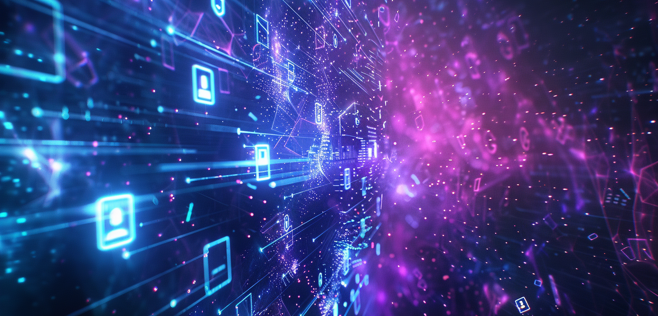
Understanding Decentralized Governance in DAOs
Decentralized governance refers to a system where decision-making power is distributed among all members of an organization, rather than being concentrated in the hands of a central authority or a few individuals. In the context of DAOs, this means that every member has a voice and a vote in the organization's operations, strategies, and policies. This model fosters a more democratic and transparent environment, where decisions are made collectively and transparently.
How DAOs Implement Decentralized Governance
DAOs implement decentralized governance primarily through blockchain technology and smart contracts. Smart contracts are self-executing contracts with the terms of the agreement directly written into code. These contracts automatically enforce the rules and execute agreed-upon actions when certain conditions are met. This automation reduces the need for intermediaries and ensures that the governance process is transparent and tamper-proof.
In addition to smart contracts, DAOs often use token-based voting systems. Members are typically required to hold specific tokens to participate in the governance process. These tokens represent voting power, and decisions are made based on the number of tokens supporting a particular proposal. This system ensures that those who are invested in the DAO have a proportional influence on its governance.
Key Principles and Mechanisms
- Transparency
All decisions, transactions, and operations are recorded on the blockchain, ensuring that everything is open and verifiable by all members. This transparency builds trust and accountability within the organization.
- Inclusivity
Every token holder has the right to participate in the governance process. This inclusivity democratizes decision-making, giving a voice to all members regardless of their stake size.
- Autonomy
DAOs operate without the need for centralized control. Smart contracts execute decisions automatically, reducing the reliance on human intervention and minimizing the risk of manipulation or error.
- Token-Based Voting
Governance tokens play a crucial role in the decision-making process. Proposals are put to vote, and the outcome is determined by the number of tokens supporting or opposing the proposal. This mechanism ensures that those with a greater stake in the organization have a proportional say in its direction.
By understanding these key principles and mechanisms, we can appreciate how decentralized governance in DAOs represents a significant shift from traditional organizational structures, offering a more democratic, transparent, and efficient way of managing and operating organizations.
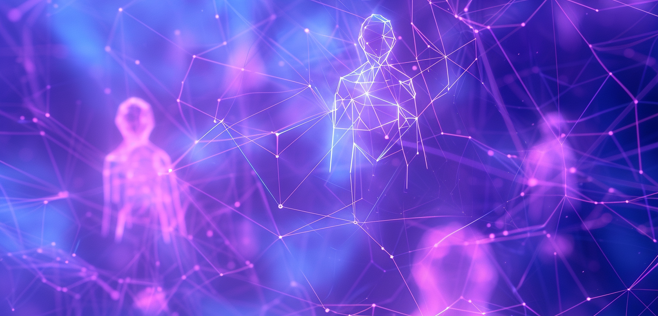
Benefits of Decentralized Governance in DAOs
Decentralized governance in DAOs offers numerous advantages that can significantly enhance the way organizations operate. Let's explore some of the key benefits:
Empowerment and Inclusivity
- Equal participation opportunities for all members
In a DAO, every member has an equal opportunity to participate in the governance process. This ensures that everyone’s voice is heard, regardless of their stake size or position within the organization.
- Community-driven decision-making
Decisions are made collectively by the community, fostering a sense of ownership and commitment among members. This democratic approach encourages active participation and collaboration.
Transparency and Trust
- Transparent processes and transactions
All decisions, transactions, and operations are recorded on the blockchain. This ensures that everything is open and verifiable by all members, promoting a culture of transparency.
- Increased trust among members and stakeholders
The transparency inherent in blockchain technology builds trust among members and external stakeholders. Knowing that all actions are transparent and immutable increases confidence in the organization’s governance.
Efficiency and Innovation
- Faster decision-making processes
Decentralized governance often results in quicker decision-making as proposals can be voted on and implemented without the delays associated with traditional hierarchical structures.
- Encouragement of innovation through collective input
The diverse perspectives of community members can lead to more innovative solutions and ideas. Collective input from a broad base of participants fosters creativity and progressive thinking.
Cost Reduction
- Elimination of intermediaries
By using smart contracts to automate processes and decisions, DAOs can eliminate the need for intermediaries, reducing operational costs and increasing efficiency.
- Reduced operational costs
The decentralized nature of DAOs means that administrative and bureaucratic expenses are minimized. This allows for a more cost-effective and streamlined operation.
Decentralized governance in DAOs not only empowers members and enhances transparency but also drives efficiency and innovation while reducing costs. These benefits highlight the transformative potential of DAOs in reshaping organizational structures and management practices.
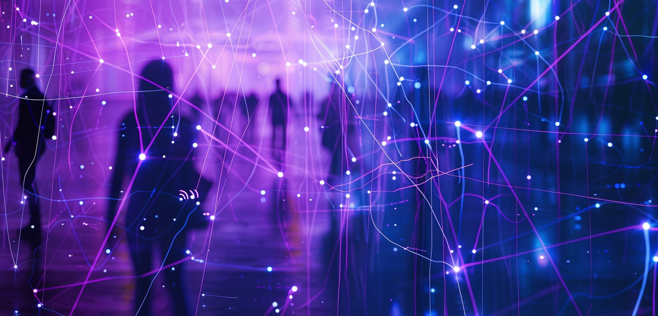
Challenges of Decentralized Governance in DAOs
While decentralized governance in DAOs offers many benefits, it also presents several challenges that need to be addressed. Let's examine some of the key challenges:
Coordination and Decision-Making
- Difficulties in achieving consensus
Reaching consensus in a decentralized organization can be challenging, especially as the number of participants grows. Diverse opinions and interests can lead to prolonged discussions and disagreements, making it difficult to achieve a unified decision.
- Potential for slow decision-making processes
The democratic nature of DAOs, while empowering, can also result in slower decision-making. The need to involve and consult a large number of members can delay urgent decisions and actions.
Security and Vulnerabilities
- Risks of smart contract bugs and vulnerabilities
Smart contracts are integral to DAO operations, but they are not immune to bugs and vulnerabilities. A single flaw in the code can be exploited, leading to significant financial losses and operational disruptions.
- Threats of malicious actors and attacks
DAOs can be targeted by malicious actors seeking to exploit vulnerabilities or manipulate the governance process. Ensuring robust security measures and continuous monitoring is essential to mitigate these threats.
Regulatory and Legal Issues
- Unclear regulatory frameworks
The regulatory landscape for DAOs is still evolving and often unclear. This uncertainty can create challenges for DAOs in terms of compliance and legal recognition, potentially hindering their growth and adoption.
- Legal recognition and compliance challenges
DAOs operate across borders, making it difficult to navigate varying legal requirements in different jurisdictions. Ensuring compliance with multiple regulatory frameworks can be complex and resource-intensive.
Scalability
- Issues with scaling decision-making processes
As DAOs grow, scaling their decision-making processes can become increasingly difficult. Managing input and votes from a large number of participants can lead to inefficiencies and bottlenecks.
- Managing a large number of participants
With more participants, coordinating actions and maintaining cohesion can be challenging. Effective communication and organizational strategies are needed to manage the growing complexity of large DAOs.
These challenges highlight the need for continuous improvement and innovation in the governance mechanisms of DAOs. Addressing these issues is crucial for the successful adoption and sustainability of decentralized governance models.
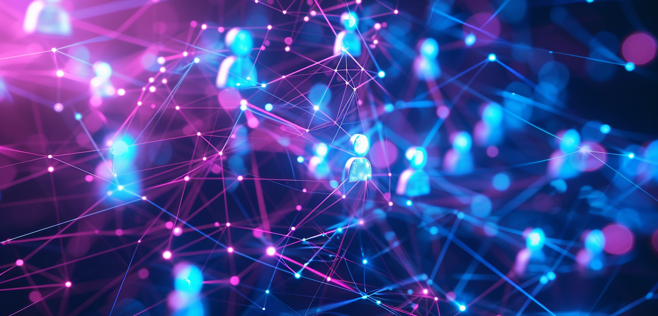
Real-World Examples of DAOs with Decentralized Governance
To better understand the practical implications of decentralized governance in DAOs, let's look at some real-world examples.
Example 1: MakerDAO – Success Story and Benefits
MakerDAO is one of the most well-known DAOs in the decentralized finance (DeFi) space. It governs the Maker Protocol, which allows users to create and manage the stablecoin DAI. MakerDAO operates on a decentralized governance model where MKR token holders can vote on key decisions, such as protocol upgrades, risk parameters, and collateral types.
Success Story
MakerDAO has successfully maintained the stability of DAI, even during volatile market conditions. The community-driven decision-making process has allowed the protocol to adapt quickly and effectively to changes in the crypto landscape.
Benefits
- Community Involvement
MakerDAO's governance structure ensures that all stakeholders have a say in the protocol's direction, fostering a strong sense of community and ownership.
- Resilience
Decentralized governance has enabled MakerDAO to implement robust risk management strategies, making the protocol more resilient to market fluctuations.
Example 2: The DAO – Challenges Faced and Solutions Implemented
The DAO, launched in 2016, was one of the first major attempts at a decentralized autonomous organization. It aimed to create a venture capital fund that would be managed by the community. However, The DAO faced significant challenges that highlighted the vulnerabilities of early DAOs.
Challenges Faced
- Security Vulnerabilities
A critical flaw in The DAO's smart contract code was exploited, leading to the loss of millions of dollars worth of Ether. This incident exposed the risks associated with smart contract bugs.
- Governance Issues
The DAO struggled with achieving consensus and making timely decisions, highlighting the difficulties of coordinating a large, diverse group of participants.
Solutions Implemented
- Hard Fork
To address the security breach, the Ethereum community implemented a hard fork, which effectively reversed the malicious transactions and restored the lost funds.
- Improved Security Practices
The incident prompted the broader crypto community to prioritize smart contract security, leading to more rigorous auditing and testing practices for future DAOs.
These examples illustrate both the potential benefits and the challenges of decentralized governance in DAOs. While MakerDAO showcases the advantages of community-driven decision-making and resilience, The DAO highlights the importance of robust security measures and effective coordination mechanisms.
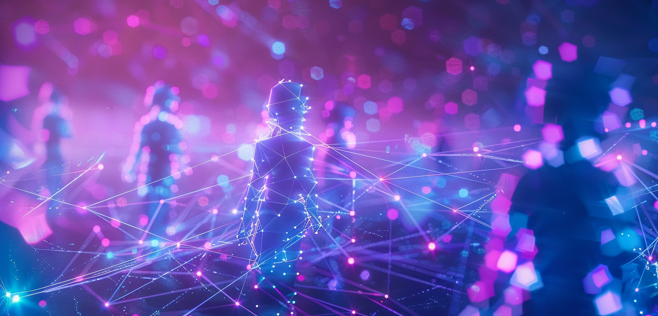
Future Prospects and Improvements
Decentralized Autonomous Organizations (DAOs) are continually evolving, and their future holds exciting potential for advancements and innovations. Let's explore some of the prospects and improvements on the horizon.
Potential Advancements in DAO Governance Mechanisms
As DAOs mature, there is significant potential for refining and enhancing their governance mechanisms. Advances in blockchain technology and smart contracts will likely lead to more sophisticated and user-friendly governance models. These improvements could include:
- Enhanced Voting Systems
Development of more nuanced voting systems, such as quadratic voting or conviction voting, which better capture the preferences and convictions of participants.
- Automated Decision-Making
Implementation of AI-driven decision-making tools to assist in proposing and evaluating governance decisions, streamlining the process and reducing human error.
Innovations to Address Current Challenges
To overcome the existing challenges in decentralized governance, several innovations are being explored:
- Scalability Solutions
Layer 2 solutions and sharding technologies are being developed to improve the scalability of blockchain networks, enabling DAOs to handle larger volumes of transactions and participants efficiently.
- Improved Security Protocols
Enhanced security measures, such as formal verification of smart contracts and decentralized identity solutions, will help mitigate risks associated with smart contract vulnerabilities and malicious attacks.
- Legal Frameworks
The establishment of clearer legal and regulatory frameworks for DAOs will provide greater certainty and facilitate broader adoption. Collaborative efforts between the crypto community and regulatory bodies are essential in this regard.
The Role of Community and Technological Development in Shaping the Future of DAOs
The future of DAOs will be significantly influenced by both community engagement and technological advancements. The community's role in shaping governance practices and protocols is crucial:
- Community-Led Innovations
Active participation from community members will drive the development of new features and improvements in governance models. The collaborative nature of DAOs ensures that diverse perspectives are considered, leading to more robust and inclusive solutions.
- Technological Integration
Integration with emerging technologies, such as decentralized finance (DeFi), non-fungible tokens (NFTs), and decentralized identity systems, will expand the functionality and application of DAOs, creating new opportunities for innovation and growth.
The future prospects of DAOs are bright, with ongoing advancements in governance mechanisms, innovative solutions to current challenges, and active community involvement. These elements will collectively contribute to the evolution of DAOs, paving the way for a more decentralized, transparent, and efficient digital future.

Conclusion
Decentralized governance in DAOs presents a transformative approach to organizational management, offering numerous benefits such as empowerment and inclusivity, transparency and trust, efficiency and innovation, and cost reduction. By enabling equal participation and community-driven decision-making, DAOs foster a more democratic and collaborative environment. The transparent nature of blockchain technology enhances trust among members, while the elimination of intermediaries reduces costs and improves efficiency.
However, decentralized governance also faces significant challenges, including difficulties in coordination and decision-making, security vulnerabilities, regulatory and legal issues, and scalability concerns. Addressing these challenges requires continuous improvement and innovation in governance mechanisms, security protocols, and regulatory frameworks.
The future of DAOs is promising, with potential advancements in voting systems, AI-driven decision-making, scalability solutions, and enhanced security measures. Community engagement and technological integration will play crucial roles in shaping the evolution of DAOs, ensuring their resilience and effectiveness.
In conclusion, while decentralized governance in DAOs offers substantial benefits, it also demands ongoing adaptation and development. By embracing these opportunities and addressing the challenges, DAOs can lead the way toward a more decentralized, transparent, and efficient digital future.
Read More




 Get RateX Pro
Get RateX Pro

 06 Jun 2024
06 Jun 2024
